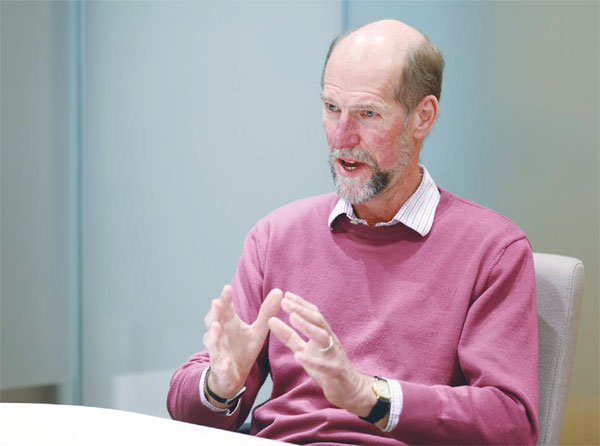Interpreting China for royalty
Updated: 2016-05-27 08:16
By Fu Jing(China Daily Europe)
|
|||||||||
Sinologist who advises Britain's Prince Philip says he is in talks about making a TV series tied to Silk Road
As environmental adviser to Britain's Prince Philip, 62-year-old Martin Palmer notes that Queen Elizabeth, who has just celebrated her 90th birthday, has reigned longer than he has been alive.
It's that longevity that has allowed Palmer, who also is a Sinologist, to help interpret the richness of Chinese cultures for the royal family for three decades.
|
|
Palmer meets with Philip, who is 94, three or four times a year and talks with the queen once every two or three years. Taoism, Confucianism, and the introduction of Chinese values in dealing with challenges of environmental protection and global warming are among their talking points.
"I think the interesting thing about the royal family and in particular about the queen is primarily longevity, a prime Chinese value," says Palmer, secretary-general of the Alliance of Religions and Conservation, a UK-based environmental organization founded by Prince Philip.
Palmer says Taoists spent hundreds of years trying to work out magic formulas with herbs and other elements to achieve longevity, but Palmer says: "Our queen seems to have done it by her own free will."
For the queen's 90th birthday, celebrated twice this year, he links longevity to Chinese values. He credits, first, "a tremendous sense of duty, which in her case is very much founded upon filial duty - a great Confucian virtue". In Chinese tradition, everybody must honor their parents, and she "absolutely adored her father and he was her hero".
Palmer has been working with the Taoists of China for years, and Prince Philip and the Queen Elizabeth have both shown enormous interest in Taoism, Palmer says, ever since he took Taoist masters to Buckingham Palace and Windsor Castle.
"They have always wanted to know more," he says.
The royal couple have asked how the religion shapes China, and what are the traditions of meditation and the core philosophical concepts of heaven, earth and humanity.
Palmer recalls the queen also asked why there were no wars between religions, intrigued as to how the different traditions of Taoism, Buddhism and Confucianism work side by side in China.
Palmer once took a senior Taoist master, the 65th direct descendant of Zhang Daoling - a venerated Taoist - to meet the queen and Prince Philip, who were fascinated to know someone who could trace their family back even further than she could. The queen's roots date back to around AD 700 while Zhang's go back to the second century.
In 1985, Palmer met the royal family for the first time when he was invited to talk to Prince Philip, who at that time was the international president of the World Wildlife Fund. Palmer had written a book for the WWF, looking at how different religions view the natural world, depending on what they believed about its origins.
Palmer was following the same cultural path as President Xi Jinping did in his speech to UNESCO in March 2014, when he was visiting France. He called Xi's speech one of the most interesting speeches by a Chinese president in recent years.
According to Palmer, Xi spoke powerfully about China's cultures, traditions and civilizations, which should be part of a recipe to bring China out of the dilemmas it faces.
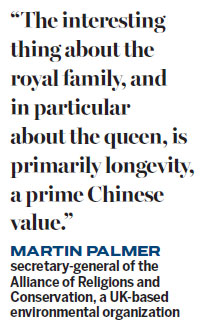
"China is at that tipping point, I mean you have got some of the polluted cities, but now you know it and you are also saying 'Well, it is not just a problem for us, it is a problem for the planet'," Palmer says. "And I think you are stepping up to the mark, it is taking responsibility as we had to take responsibility."
Palmer says "the ecological civilization", a phrase often used in Chinese policy, is a fascinating expression that he first came across in 2006 when he was working with the Taoists in China on protecting their sacred mountains and on their moral and spiritual influence on China, which he has been doing since 1995.
This is a concept, he says, which reflects the notion that the Chinese have begun to care not just for themselves, but also for people who are less fortunate than themselves, and for the forests, the rivers and the fish, after the rapid development of the past three decades.
"These had been shown in the Chinese classics for thousands of years and this is a rediscovery of Chinese civilization because it could shape how we live," he says. "And so I've watched over what is now 10 years, this rediscovery, reevaluation of the best of cultural tradition."
The old Confucian phrase of benevolence, or renli, is rooted in what it is to be a good human being, he says. "So when ecological civilization came along, for me, I could trace its history."
Palmer says the idea of having phases of ecological civilization - which has become one of the overriding developmental components of the Communist Party of China since 2012 - should be given global recognition.
Now one of the problems is that the West has so devalued its own notion of civilization that it doesn't quite get it when a country says it wants civilization, Palmer says.
"This is China's great gift, that we can have an ecological civilization, which will come into being. So I think that the significance of ecological civilization is that it is a profound challenge to a Western, materialistic world," says Palmer.
For years, he has translated Buddhist, Taoist and Confucian texts into English.
"I'm translating at the moment the Sanguo, The Romance of the Three Kingdoms, and the wisdom that is embedded in those texts and stories, that's what I understand by civilization," he says.
Palmer says he is in talks with different organizations in China, including the Party's cultural and communication units, about making a six-part TV series tied to the Silk Road. It would look at the way ideas, stories, beliefs, religions and philosophies traveled back and forth along the Silk Road and shaped the great religions of the world.
"The China side is very excited by this. I suppose they don't meet many Westerners who know as many stories from Chinese history as I do," he says.
For years, as a Christian, Palmer has led a simple life, and also has benefited from Chinese wisdom, which is about enjoying what one can legitimately enjoy, as written in the ancient Chinese classics.
"For me, it is about enjoying the good things in this life," Palmer says. "But making sure that that is not at the cost of anyone else or at the cost of creation."
fujing@chinadaily.com.cn
Today's Top News
Rescue vessel eyed for the Nansha Islands
Steeled for change
EU has to cope with outcome of British referendum
Four Chinese banks among world's 10 largest
Kiev swaps Russian detainees for Ukraine's Savchenko
Refugees relocated during major police operation
China calls for concerted anti-terror efforts
London's financial centre warns of dangers of Brexit
Hot Topics
Lunar probe , China growth forecasts, Emission rules get tougher, China seen through 'colored lens', International board,
Editor's Picks
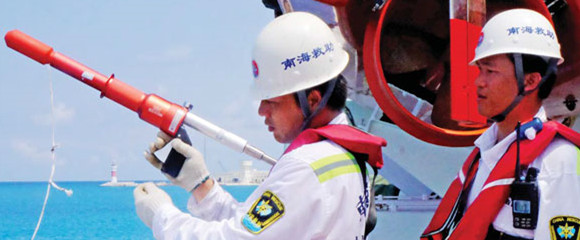
|
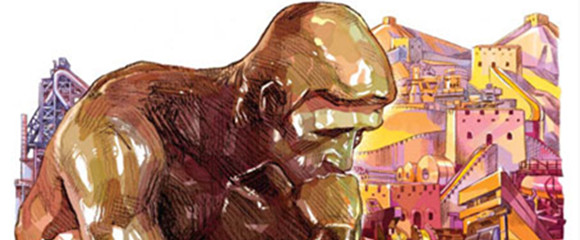
|
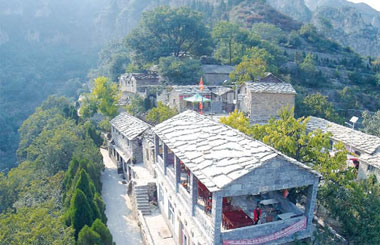
|
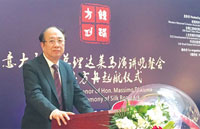
|

|

|
